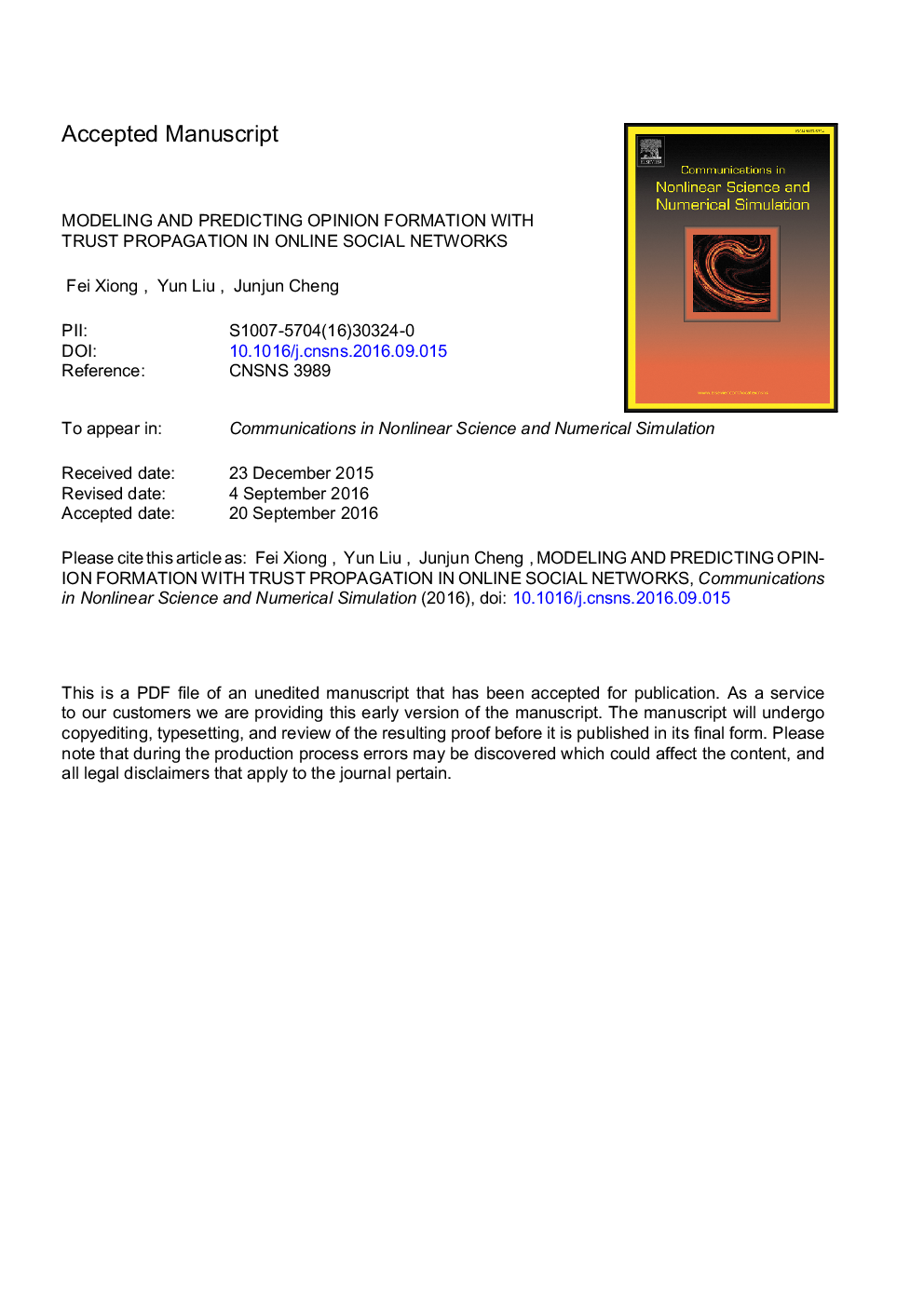| Article ID | Journal | Published Year | Pages | File Type |
|---|---|---|---|---|
| 7155026 | Communications in Nonlinear Science and Numerical Simulation | 2017 | 22 Pages |
Abstract
While many opinion models often concentrate on the stable state and phase transition of the dynamics, the temporal evolution pattern of public opinion rarely is investigated. If the variation of opinions with time can be formulated, it is probable to effectively characterize the intrinsic process or even predict the future trend of the global state. In this paper, we study a trust-aware voter model in which individual trust co-evolves with their opinions and the trust on a target agent propagates from common neighbors. When agents often have similar opinions with their neighbors, they may develop trust on the neighbors, and vice versa. Individual trust changes opinion interactions, and agents tend to adopt opinions of the neighbors they trust. Mean-field analysis and simulations are conducted to explore the transient opinion profiles of the model. Results prove that public opinion changes as an exponential mixture form in both homogeneous and heterogeneous networks. Most agents quickly stick to the majority opinion, and the conservation of magnetization is broken. Indirect trust promotes opinion interactions and drives the system towards consensus. In addition, we conduct empirical experiments on topic discussions of a real-world network, and the results show that the model well fits and predicts opinion formation over online social networks.
Keywords
Related Topics
Physical Sciences and Engineering
Engineering
Mechanical Engineering
Authors
Xiong Fei, Liu Yun, Cheng Junjun,
